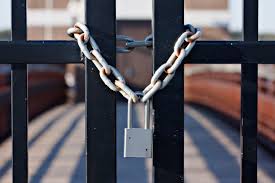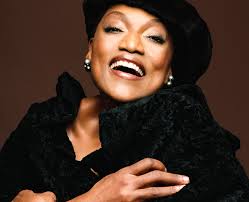|
Earlier this month, I attended the Resonant Bodies Festival at Merkin Hall to hear fantastic singers present compelling 20th and 21st century music that moved them. This year, the festival is kind of a big deal, and all three women headlining the well-attended opening night were unquestionably a big “get,” and the audience seemed to know it. I found the music to be lovely and the singing to be exceptional, and I was especially captivated by the exactitude and charisma of Tony Arnold’s opening set. Most reviewers gushed about the entire program, understandably. The festival, in its own words “supports the growth and evolution of contemporary vocal music and vocal artists,” but as the night went on (and on, and on—3 hours by the time the night was done), it became increasingly disconcerting for me as I realized that all of the performers (singers and their accompanying instrumentalists alike), organizers, and composers who graced the stage that night were white. (The final bows were a throwback to what I imagine the halcyon days of everything-before-1970 was like, just plus women.) Whiteness (or brownness) is clearly not a determinant of musical quality, but as the headlining, much-regaled opening night of a trend-setting festival that has maneuvered itself squarely into the New York contemporary music scene (and plans to expand to Chicago, LA, and Melbourne soon), the lack of diversity was a disappointment. White music, performed by white people, for a (mostly older) white audience. (In selecting music, the singers did choose music that reflected a variety of ages and national origins of the composers—USA, Germany, Hungary, Britain—as well as a variety of languages, including non-language sounds. One of the young composers featured is on the festival’s Artistic Advisory Board, and one of the two women composers is, also.) As gatekeepers—concert organizers and festival presenters whose high profile helps define taste and lend legitimacy to young and emerging composers and performers especially—does a festival such as Resonant Bodies have an obligation to ensure diversity its programming? What is it missing out on by presenting a stage full of white voices, both performers and composers? It’s partly out of the festival’s hands, since they (after choosing the singers, of course), let each singer decide what and how he or she wants to present (“Vocalists are invited to curate and perform in their own 45-minute set, with no restrictions on repertoire, format, or style”). However, all three women featured sit on the festival’s Artistic Advisory Board. Tony Arnold brought up the issue of what music is worthy of being on that center stage by telling the audience, in the middle of her set, that her chosen pieces represented the range of what she thought was exciting in classical vocal music today. How unfortunate that she, along with Dawn Upshaw and Lucy Shelton, are most captivated by the music of white men (there were two pieces by women on the program, one in Upshaw’s set and another in Shelton’s). Shelton’s demanding set featured 4 (four!) world premieres, but that implies that still, in 2015, she’s working nearly exclusively with white composers (and three of the four premieres were by men). (A friend also noted after the show the tension or awkward power dynamic of music nearly exclusively by men composers being sung by women.) Is this homogeneity an indication that our musical education system (and social system more broadly) is only producing or encouraging white composers who are capable of composing the kind of music suited to this festival, or who are capable of networking in the kind of way landing a gig like this requires? Or does it imply that the festival producers, and the singers themselves, as the gatekeepers deciding what does and doesn't get played, don't realize the omission they've made? Or they do realize it yet don't think it's an issue? Or do they believe that featuring one non-white singer at some point in the festival fulfills some sort of mollifying quota, and the accompanying instrumentalists are a non-issue? (Previous festivals have featured non-white singers and instrumentalists, to be sure, and Du Yun was featured on the second night of the festival this year, but the remaining singers selected this year were white. I didn’t attend other performances, so I can’t speak to the accompanying instrumentalists’ ethnic backgrounds. However, a palette like that of Resonant Bodies 2015 stands in stark contrast to the recent cover of Opera News and its list of “25 Rising Stars,” coincidentally issued the second day of Resonant Bodies. Or mic.com’s list of “9 Brilliant Contemporary Composers Who Prove Classical Music Isn’t Dead,” which includes Thomas Adès, whose music was sung by Tony Arnold at Resonant Bodies, in addition to Unsuk Chin, Saed Haddad, and Angélica Negrón.) But if these are the festival's additional goals, then why remain so mired in one demographic for nearly all the artists involved?
After the concert, wine in hand in the lobby, I heard, told in that breathless “Isn’t entrepreneurship amazing!” way, that the Resonant Bodies Festival began three years ago with a few thousand dollars out of the founder's pocket, and via networking and fundraising has grown its donor base to support its much-expanded, more press-worthy third season. Part of me wondered if that fundraising drive would actually have been equally financially successful if the festival’s on-stage profile were more diverse. Do moneyed white patrons actually want to support musical diversity, or just a range of musical sounds within a white community? How much of a role does race play in the palatability of strange, often unfamiliar, musical sounds? Jessye Norman’s presence (as a decidedly “resonant body”) probably would have encouraged checkbooks to come out, but would Pumeza’s? What if three Asian singers on this list had been featured for an entire night of the festival? Trying to get a seat at the metaphorical musical table is a defining aspect of non-white classical music careers. Composer T.J. Anderson has lamented the “invisibility” of black composers especially: “We’ve been invisible. Like Ralph Ellison said, you know: We’re invisible, and any chance we get for exposure is very important.” The festival was notable in its featuring of women (singers, composers, and instrumentalists), which is unsurprising given that the founder is a woman, as are most members of the festival’s Staff and Artistic Advisory Board; their programming grows out of their network of colleagues and the issues that are palpable to them. Yet, two women composers doesn’t define diversity, and catapulting them to the mainstage alongside revered men composers (what an awkward epithet, one that only underscores the “normalcy” of men composers!) doesn’t do justice to the other minorities, and intersectional minorities, left in the shadows offstage. It’s not as if all categories of artist other than “white man” simply require a single representative to satiate some sort of quota of “otherness”—ok, guys, this time white women are taking one for the team, and next time we’ll send an Asian guy. Or a black guy. Or another token systematically-oppressed minority. But not too many of them, because then it’s a minority event. (See The Perfect Guy, which has been mistakenly referred to as a “black movie” because of the presence of a black cast).
This issue of responsibility is one that haunts my own programming. I acutely feel guilty (it’s more of a pulsating dyspepsia) when my ensembles’ programming or invitations issued to composers ignore the diversity of artistic voices available to us (and they’re available—digital communication removes any excuse for in-network only collaborations). At the same time, I worry that my own intersectionality makes me overly sensitive to artistic perspectives being ignored (or remaining invisible, following Ellison and Anderson), and I worry that my championing of them turns me into that “black musician,” reducing my value as a musician into that of a minority cliché (that too-easily dismissed “angry black woman” who receives eye rolls in meetings because she’s talking about “black issues” again), or preventing me from having legitimacy in the “normal” (ahem) classical world, or pigeon-holing my repertoire for the foreseeable future. It’s not a fight that will be won on the stage of the Resonant Bodies Festival alone, nor in the small battles in my own ensembles’ programming; it’s an issue along the lines of a “Black Voices Matter” movement (plus additional such necessary movements for all the other marginalized voices out there) that will require a collective, communal, unrelenting (even if glacial) push to demand, ensure, and celebrate a true diversity of musics on the stages where it counts.
1 Comment
Leave a Reply. |


 RSS Feed
RSS Feed